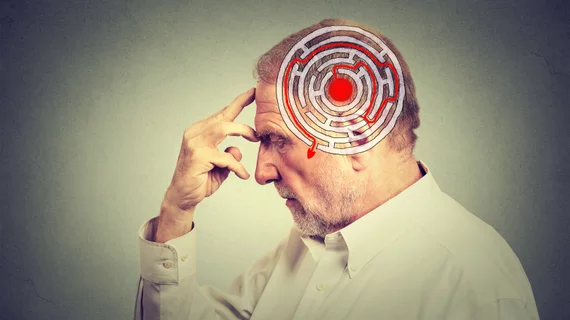A new diffusion tensor imaging-based technique can help predict problems related to dementia in patients with stroke-related small vessel disease, according to new research published in Stroke.
The advanced MRI method analyzes damages across the brain in fine detail using a single image. Compared to healthy brain areas, patients with the most damage were more likely to develop thinking problems. Diffusion tensor image segmentation (DSEG) predicted 75% of the dementia cases in the study, reported senior author Rebecca A. Charlton, PhD, department of psychology at Goldsmiths, University of London, in the UK.
“We have developed a useful tool for monitoring patients at risk of developing dementia and could target those who need early treatment,” Charlton said in a release from the American Heart Association.
Small vessel disease occurs when a stroke damages small blood vessels in the brain—a common cause of thinking problems and, in some cases, a precursor to dementia. Currently, the researchers noted, there is no test to identify such damages.
Charlton and colleagues enrolled 99 patients with small vessel disease caused by ischemic stroke in their study. Participants—average age of 68 and 33% female—underwent annual MRI for three years and cognitive assessment for five years as part of the London-based St George's Cognition and Neuroimaging in Stroke (SCANS) study from 2007 to 2015.
A total of 18 patients went on to develop dementia during the study, with an average time to onset of about three years and four months. Baseline DSEG predicted dementia with a balanced classification rate of 75.95% and AUC of 0.839. The novel model achieved a balanced classification rate slightly higher at 79.65% with an AUC of 0.903.
“This advanced MRI analysis offers a highly accurate and sensitive marker of small vessel disease severity in a single measure that can be used to detect who will and will not go on the develop dementia in a five-year period,” Charlton added.

